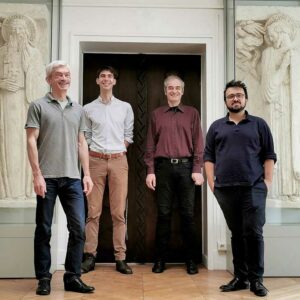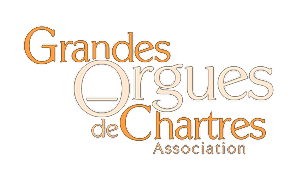 Pascal Bezard (bass-baritone)
Pascal Bezard (bass-baritone)
Éric Gervais (tenor)
Samuel Guibal (bass-baritone)
Jean-Philippe Poujoulat (tenor)
Since its creation in the early Carolingian period, the Gregorian repertoire has been interpreted in a wide variety of ways. As the official song of the Roman Church, it is the prayer and office song of monasteries, as well as the music of the great papal and imperial chapels, where it is performed by professional singers in the service of the Church of Princes.
The Magnus Liber ensemble’s concert presentation of this great corpus of Western music, with its wide range of emotions and original spirituality, is based on the idea of regular work on the repertoire by a group of professional singers.
Trying to approximate the idea of the great chapels of the High Middle Ages, Magnus Liber performs as a male choir of two to seven singers, depending on program and venue.
The ensemble works under the dual musical direction of Éric Gervais and Pascal Bezard, each bringing his or her own skills, experience, desires and personality.
Avoiding both musicological cataloguing and para-liturgy, the programs are built around the great themes that irrigate the texts of Gregorian chant. For each concert, the Magnus Liber ensemble proposes a theme to explore the diversity of musical forms, from the simplest to the most ornate, with the vocal cast varying to best serve each piece (choir, soloist, dialogue between soloists or between soloists and choir, etc.).
The Magnus Liber ensemble’s repertoire thus explores music from the time of Charlemagne, but also through polyphony, its survival at the time of the first Capetians to the immense flowering of the École Notre-Dame at the time of the construction of the Gothic cathedral, as well as masterpieces from the repertoire of the great composers of the late Middle Ages, such as Guillaume de Machaut in the 14th century.


